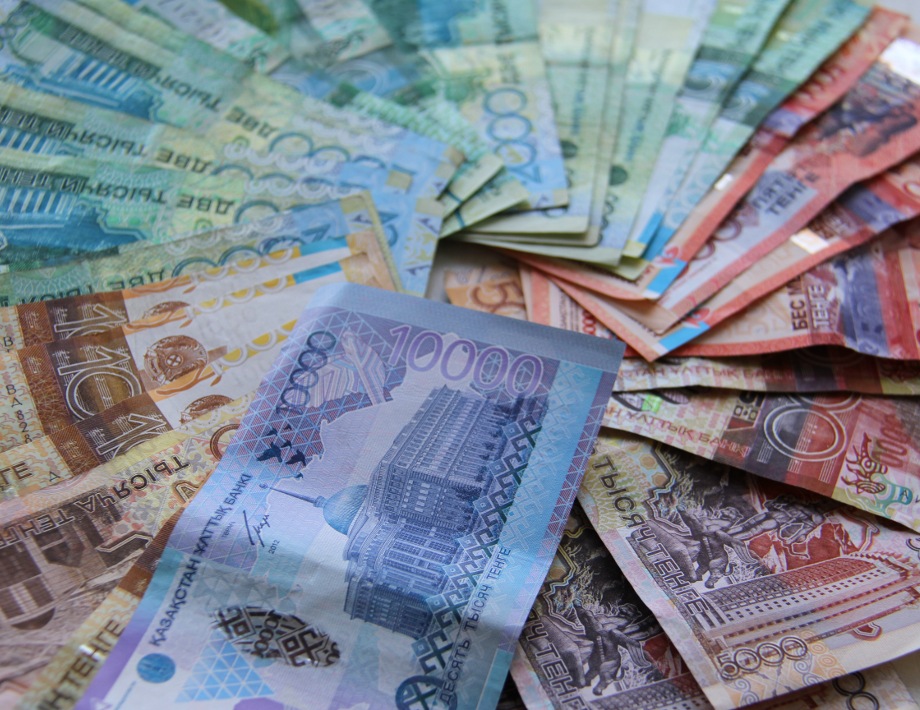Officials reject, experts warn about tenge devaluation

By Aynur Karimova
Economics have repeatedly talked about the possibility of devaluation of Kazakhstan’s national currency tenge given the problems occurred for the Russian ruble and fluctuations in oil prices in the world markets.
Head of Kazakhstan’s National Bank, Kairat Kelimbetov has assured the nation that the bank doesn’t intend to allow sharp fluctuations in the exchange rate of tenge in 2015.
Speaking at a plenary meeting in parliament on January 21, the head of the bank said currently, tenge (the currency corridor is 170-188 KZT/$1) is in a currency corridor which implies certain changes.
“We believe that today’s safety factor allows us to remain within this corridor,” Kelimbetov said, while noting that there are expectations of devaluation which are connected with two factors.
“First of all, it is the low range of oil prices. On the other hand, it is connected with the devaluation of the Russian ruble,” Kelimbetov said. “The first factor – the oil prices – is the most important one for us, therefore, we will closely monitor the situation,” he said.
However, several experts believe that Kazakhstan is threatened with a new devaluation of its national currency. A weakened ruble caused a problem not only for Russians, but also for the neighboring countries, which are frightful of the inflow of cheaper imports from Russia.
It seems that in order to smooth out imbalances and to stop the appreciation of tenge against ruble, the National Bank will have to derail the Kazakh currency even more than during the last devaluation in February 2014, when the weakening of the tenge by 20 percent provoked discontent of citizens.
The weakening of the Russian ruble has had a bad impact on the economies of the former Soviet republics. The devaluation of the Belarusian ruble amounted to 27 percent at the end of December. It seems that Kazakhstan, which endured against the background of Russian crisis in the second half of 2014, will have no choice but a new devaluation of its national currency.
The current year will become a new reality for the Kazakh economy. Russia's share in export of Kazakhstan is only 7 percent, but the share of Russia's non-oil export is significantly higher - about 25 percent. Furthermore, 37 percent of goods are exported from Russia. Therefore, the 10-percent devaluation of ruble could lead to a reduction of the trade balance by $2.5 billion.
Volatility of the ruble has already provoked high demand in Kazakhstan for imports from Russia. Hence, the National Bank will have to smooth imbalance, lowering the exchange rate of the tenge. And this, in turn, will once again become a serious problem for the authorities, because public confidence in the national currency of Kazakhstan is already quite low.
The devaluation of the tenge will cause a deficit of food products in Kazakhstan. Meanwhile, some factors indicate that Kazakhstan's economy is not yet in the worst condition. On the one hand, its growth slows down, but on the other hand, because of the sanctions regime imposed against Russia, Kazakhstan becomes a more attractive country for foreign investors than Russia.
Last time Kazakhstan devaluated its national currency in February 2014. According to data released by the Central Bank of Russia, in February 2014, when tenge had not yet been devaluated, 22-23 rubles were equal to 100 tenges. Even after such an exchange rate, the Kazakh authorities decided to sharply devalue the national currency, after which the exchange rate was 18-19 rubles per 100 tenges. But now, according to recent data, 35 rubles are equal to 100 tenges. In other words, all the factors, due to which the Kazakh authorities announced the devaluation of the national currency, not only preserved, but also strengthened.
The experts believe that the devaluation of the tenge is expected not only because of the ruble crisis, but also fluctuation of oil price in the world markets. In 2015, the national currencies of oil exporting countries, including the Kazakh tenge, will likely decrease against U.S. dollar due to existing reduction of oil price.
Decrease of the tenge value could start in the near future, as the economy of Kazakhstan and Russia are closely connected with each other. However, it will not be so rapid, because the ruble is under the influence of Western sanctions and of internal Russian problems.
--
Aynur Karimova is AzerNews’ staff journalist, follow her on
Twitter: @Aynur_Karimova
Follow us on Twitter @AzerNewsAz
Here we are to serve you with news right now. It does not cost much, but worth your attention.
Choose to support open, independent, quality journalism and subscribe on a monthly basis.
By subscribing to our online newspaper, you can have full digital access to all news, analysis, and much more.
You can also follow AzerNEWS on Twitter @AzerNewsAz or Facebook @AzerNewsNewspaper
Thank you!
